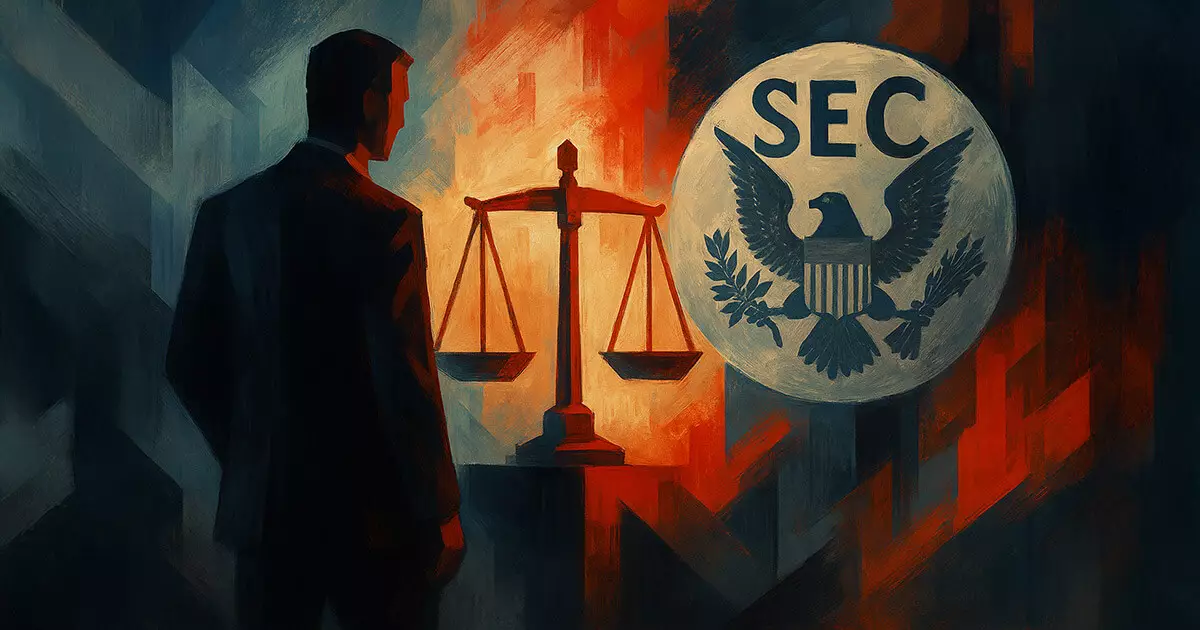In recent years, the allure of guaranteed high returns has emerged as a siren song for unsuspecting investors. Tempted by promises of up to 18% annual yields, many have been pulled into the web of schemes that masquerade as legitimate investment opportunities. Such promises are not only exaggerated but inherently dangerous, signaling a fundamental flaw in the integrity of the financial ecosystem. The case of First Liberty Building & Loan, LLC, exemplifies how greed and exploitation flourish in the shadows of the economy’s veneer of stability.
This incident underscores a broader issue: the seductive power of overpromising in a climate where economic insecurity often fuels desperation. When legitimate financial institutions falter, they inadvertently create a fertile ground for fraudsters to step in, offering false hope packaged in the promise of quick riches. The danger lies not just in individual losses but in the erosion of trust that is essential for the proper functioning of free markets. When a significant portion of the public begins to see investment as a gamble, the entire fabric of economic confidence becomes vulnerable.
Distortions of Justice and the Role of Political Influence
What makes the First Liberty scandal particularly troubling is the involvement of prominent figures such as Edwin Frost, whose political donations and community ties exemplify how financial crime can intertwine with political capital. This confluence raises critical questions about the integrity of our democratic institutions. When individuals leverage their social or political relationships to entrench fraudulent schemes, they threaten the very foundation of transparency and fairness.
In a functioning democracy, the rule of law is paramount. Yet, the spectacle of a politically connected financier allegedly pilfering millions and indulging in luxury spending, all while engaging in fraudulent activity, reveals a disturbing double standard. It fuels cynicism among the electorate, undermining faith in political and financial systems alike. Such cases highlight the urgent need for stricter oversight—not only of financial misconduct but also of the influence wielded by powerful figures who can sway regulatory outcomes or escape accountability.
The Consequences of Regulatory Failures and the Battle for Consumer Protection
The SEC’s intervention signifies an essential, but often reactive, effort to safeguard retail investors from predatory schemes. However, the delay between the scheme’s inception and its exposure reveals systemic vulnerabilities in our regulatory apparatus. Excessive reliance on self-policing by entities that have vested interests or inadequate resources creates loopholes, allowing fraud to persist potentially for years.
Investors who stumble into Ponzi schemes often do so because of insufficient transparency and a lack of due diligence. The ease with which such schemes are designed to mimic legitimate financial products demonstrates a failure of investor education and regulatory vigilance. Confronting this pattern requires not only rigorous enforcement but also proactive measures—public awareness campaigns, tighter licensing requirements for small-scale lenders, and independent audits of promising investment opportunities.
The Challenge of Restoring Trust and Ensuring Accountability
The aftermath of the First Liberty collapse exposes a fundamental dilemma: how to restore confidence in the financial system damaged by such high-profile cases of fraud. The justice system’s response—seeking asset freezes, penalties, and disgorgement—provides some sense of accountability. Nevertheless, these measures often arrive too late for many investors, whose lives have been significantly disrupted.
More critically, the broader societal impact hinges on the belief that the law can and should serve as a steadfast protector of ordinary people against the excesses of wealth and influence. It is essential that regulatory bodies operate with transparency, and with a renewed commitment to thwarting the culture of opportunism that allows Ponzi schemes to thrive. Reinforcing the principle that illicit gains must be recovered and wrongdoers held accountable helps foster an environment where trust has a chance to rebuild.
The scandal also reveals the necessity of a balanced approach: supporting honest entrepreneurs and community-focused businesses, while simultaneously vigilantly policing those who abuse liberal market principles for personal gain. Fostering a marketplace rooted in fairness and accountability is not only a moral imperative but also a strategic move to uphold a resilient, center-right liberal economic philosophy that champions free enterprise with responsible oversight.















